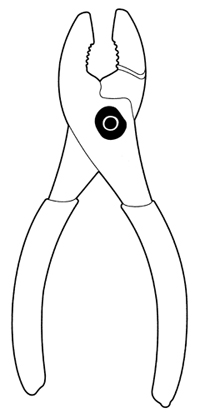 A member of our monastery has very bad teeth. He has needed to have many teeth pulled out, but he’d rather not have the anesthetic. Eventually he found a dental surgeon in Perth who was willing to extract his teeth without anesthetic. He has been there several times. He finds it no problem.
A member of our monastery has very bad teeth. He has needed to have many teeth pulled out, but he’d rather not have the anesthetic. Eventually he found a dental surgeon in Perth who was willing to extract his teeth without anesthetic. He has been there several times. He finds it no problem.
Allowing a tooth to be extracted by a dentist without anesthetic might seem impressive enough, but this character went one better. He pulled out his own tooth without anesthetic.
We saw him, outside the monastery workshop, holding a freshly pulled tooth smeared with his blood, in the claws of an ordinary pair of pliers. It was no problem: he cleaned the pliers of blood before he returned them to the workshop.
I asked him how he had managed to do such a thing. What he said exemplifies why fear is the major ingredient of pain: ”When I decided to pull out my own tooth—it was such a hassle going all the way to the dentist—that didn’t hurt. When I walked to the workshop, that didn’t hurt. When I picked up the pair of pliers, that didn’t hurt. When I held the tooth in the grip of the pliers, that didn’t hurt either. When I wiggled the pliers and pulled, it did hurt then, but only for a couple of seconds. Once the tooth was out, it didn’t hurt much at all. There was only five seconds of pain, that’s all.”
You, my reader, probably grimaced when you read this true story. Because of fear, you probably felt more pain than he did! And if you tried the same feat, it would probably hurt terribly, even before you reached the workshop to get the pliers. Anticipation—fear—is the major ingredient of pain.
Thank you for subscribing to Tricycle! As a nonprofit, we depend on readers like you to keep Buddhist teachings and practices widely available.